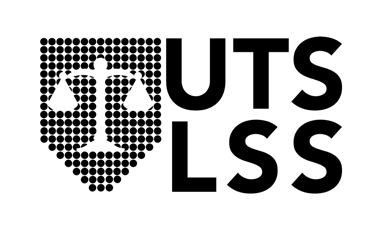

Careers Guide 2025












Acknowledgement of Country
The UTS Law Students’ Society operates on the ancestral lands of the Traditional Custodians and Elders of this nation. As a body which strives to actively support the reconciliation process with Indigenous peoples, the UTS LSS acknowledges the Gadigal people of the Eora nation, the Boorooberongal people of the Dharug Nation, the Bidiagal people and the Gamaygal people upon whose ancestral lands our university stands. Furthermore, we pay our respects to the Elders past, present and emerging, acknowledging them as the traditional custodians of knowledge for these lands.
Acknowledgements
Careers (Publications) Director Jessica Trinh
Careers (Publications) Subcommittee Omar Chouman, Shravanti Hari, Eve Lim, Oishe Rahman, Annamika Sawant, Cherie Tran
Designer Janina Osinsao
President Nipun Kar
Vice President (Careers)
Clairessa Ng
First Nations Representative Huw Wiremu-Watson
Dean (Acting) of UTS Faculty of Law
Tracey Booth




Welcome Address
Huw Wiremu-Watson
First Nations Representative

Hello, bujari gamarruwa and Kia ora! My name is Huw Wiremu-Watson and I am the First Nations Representative to the LSS for 2025.
I am proud to be Māori of the tribes Ngāti Tūwharetoa and Te Āti Haunui-a-Pāpārangi and I have a great passion for First Nations justice. In my spare time I enjoy playing and watching rugby (both codes!), listening to music and playing piano.
As First Nations Representative, my goal is to connect and support all First Nations law students throughout the duration of their degree. I am dedicated to bolstering the involvement of First Nations law students, as well as other stakeholders such as First Nations Community Groups, within the array of exciting initiatives that have been planned for the year ahead.
I am here to ensure the availability of academic, cultural and/or well-being resources that may assist each and every one of you throughout the year.
As such, please do not hesitate to reach out via email: firstnations@utslss.com. Thank you!
Professor Tracey Booth
Dean (Acting) of
UTS Law

Welcome to the UTS LSS Careers Guide 2025. I am delighted to introduce this Guide which is an invaluable resource designed to support you as you explore the diverse and exciting pathways that a law degree can open.
As Dean (Acting) of the Faculty of Law at the University of Technology Sydney, I am proud of our excellent programs and the fact that our graduates are highly sought after. We regularly receive very positive feedback from law firms, judges, NGOs, and alumni about the high quality of UTS Law graduates. In particular, we are told that our graduates stand out because they are articulate, work ready, industry focused, creative, and good team players. The feedback confirms what we know to be true of the UTS Law degree – it represents a highquality legal education, intellectually rigorous with an emphasis upon skills.
This guide showcases a wide range of opportunities available to law graduates. You’ll find insights into various fields of law — from criminal and family law to corporate, environmental, human rights advocacy and international law — as well as emerging areas such as legal technology.
You’ll also discover how legal skills translate into careers in government, business, and the not-for-profit sector. The versatility of your UTS law degree means that your career can be as unique as your interests and values.
I wish I had had access to such a guide when I was a law student. There were no lawyers in my family, and I didn’t know anyone that had a law degree. I certainly didn’t know that there were options beyond legal practice, and nor did I understand the versatility of my legal skills in professions outside law. When I graduated from law school, I was living in a rural area outside Sydney and commenced my law career as a solicitor in a general practice. What a roller coaster! I loved the diversity of my work and working closely with my community. But while I was at law school, I had also really enjoyed research and after a few years in practice, I embarked on a new career path as a legal academic. A decision I have never regretted!
As you read through this guide, I encourage you to reflect on your own values and aspirations. What kind of impact do you want to make? What issues matter most to you? The law is a powerful tool for change, and your career can be a vehicle for justice, innovation, and leadership. Whether you aspire to become a legal practitioner, policy advisor, in-house counsel, human rights lawyer, or pursue a career beyond traditional legal practice, stay open to possibilities and opportunities.
Finally, I want to congratulate the UTS LSS for their initiative and commitment in producing this guide. It is a testament to the vibrant, collaborative, and ambitious student community we are proud to have at UTS.
I hope this guide inspires you to explore widely, think boldly, and take confident steps toward a fulfilling career. Enjoy!
Nipun Kar
President of UTS LSS 2025

On behalf of the UTS Law Students’ Society (LSS), I am honoured to welcome you to the 2025 Careers Guide!
The Careers Guide continues to be one of the most valuable resources we provide to our members, equipping students with the knowledge, tools, and confidence, to navigate the many diverse and rewarding pathways open within, and beyond, the legal profession.
The Guide has been carefully curated to provide practical insights into recruitment processes, industry expectations, and the wide array of careers open to law graduates. There is a plethora of advice and unique perspectives within the publication, so no matter what your goals or aspirations are, this publication is to help you elevate and progress your career forwards.
The pages ahead reflect the tremendous dedication of our Careers Portfolio, in particular Clairessa and Jessica! The creation of the Careers Guide is a major project for our society, and it would not have been possible without their enthusiasm and
effort. A special thanks also to our Careers sub-committee who were involved throughout the preparation of this publication.
The generosity and support of our sponsors is also evident in this publication, and for that I extend my sincere gratitude.
I hope you all find this publication useful and informative, and feel more confident with your career!
Thank you.
Jessica Trinh
Careers (Publications) Director

It is an absolute pleasure to welcome you all to the UTS LSS Careers Guide for 2025. The Careers Guide has been specially curated to provide clarity and widen the understanding of the legal profession for all UTS Law Students, gain valuable insights into the various fields of the law industry and also decipher the requirements to be admitted as a legal practitioner.
The focus of my tenure this year has been to incorporate a deeper focus on broadening the scope of the different facets of the law industry, especially the emerging and evolving fields, which incorporate a mosaic of various legal areas which may not be considered mainstream. It is my intention that this year’s Guide showcases the various legal and non-legal avenues available in order to equip you with all the information needed to make an informed decision about your future career. Therefore, we have expanded the Careers Guide this year to include a new section on New and Emerging Practice Areas, which we hope will provide UTS Law Students with unique insights into the dynamic future of the legal profession
and industry. I would like to take this opportunity to express my thanks to my dedicated subcommittee (Omar, Shravanti, Eve, Oishe, Annamika and Cherie) for all their exceptional contributions to the Guide. I would also like to sincerely commend the effort and work of our designer, Janina Osinsao, who brilliantly encapsulated our design vision for this year’s Guide. Thank you to the Acting Law Faculty Dean, Professor Tracey Booth, our President, Nipun Kar, and our First Nations Representative, Huw Wiremu-Watson, for their invaluable addresses to the Guide. Lastly, I wish to express my gratitude to our Vice President, Clairessa Ng, whose unwavering guidance and support assisted me in bringing this Guide to life.
I wish you all the best of luck for your future endeavours, and happy reading!

Legal Ethics
What are Legal Ethics?
Legal ethics underpin the practice of law in New South Wales (NSW). They exist to safeguard the integrity of the profession, ensure trust in the legal system, and maintain fairness in the administration of justice.
For solicitors, the Law Society of New South Wales is the primary regulator, while barristers are governed by the NSW Bar Association. Both bodies impose strict ethical obligations to ensure that practitioners act with honesty, independence, competence, and respect for the law.
Ultimately, ethical obligations are not just rules to follow; they further reflect the values of the profession. They demand that lawyers act in their client’s best interests while balancing their overarching duty to the court and the public interest in justice.

Governing Framework in NSW
The ethical conduct of solicitors in NSW is regulated by:
• Legal Profession Uniform Law (NSW)
• Legal Profession Uniform Law Australian Solicitors’ Conduct Rules 2015
Together, these establish the professional standards that guide everyday practice.
Core Duties of Solicitors
While the rules are detailed, several key principles form the backbone of legal ethics:
Duty to the Court
Solicitors must act with honesty, integrity, and candour. They cannot mislead the court and must assist in the proper administration of justice—even when this may not align with their client’s interests.
Avoiding Conflicts of Interest
Solicitors must not act in matters where their duty to one client conflicts with their duty to another or with their own personal interests. They must disclose potential conflicts and, where appropriate, obtain informed consent before proceeding.
Confidentiality
Client confidentiality is fundamental. Practitioners must protect sensitive information from unauthorised disclosure, ensuring trust between lawyer and client is preserved.
Competence and Diligence
Lawyers are expected to stay informed of legal developments, act efficiently, and provide advice and representation that meet the profession’s high standards.
Honesty and Fair Dealing
Solicitors must engage fairly with clients, colleagues, and third parties. This extends to transparent billing practices and avoiding conduct that could be considered misleading or deceptive.
Clear Client Communication
Clients are entitled to be kept informed about their matters. Lawyers should explain options, risks, and progress in a way that enables clients to make informed decisions.
Professionalism
Solicitors must uphold the reputation of the profession through respectful and courteous behaviour at all times, both inside and outside the courtroom.

Reasonable Fees and Costs
Practitioners are required to provide accurate information about fees, ensure costs are proportionate to the work done, and avoid charges that could be seen as excessive.


Why Ethics Matter for Aspiring Lawyers
For law students and graduates entering the profession, understanding legal ethics is essential. More than a set of technical rules, they form the foundation of a lawyer’s credibility and the public’s confidence in the legal system. Breaches of ethical obligations can have serious professional and personal consequences, from disciplinary action to loss of practising rights.
Approaching your career with an appreciation of these responsibilities will not only protect you but also mark you as a practitioner committed to justice, fairness, and professionalism.

Admission into Practice
!Pro Insight: Plan your PLT early— many graduates choose to undertake it immediately after their degree, while others prefer to combine it with part-time work. Understanding the admission timeline will help you transition smoothly from student to practitioner.
The journey from law student to legal practitioner does not end with the completion of your degree.
Admission to practice represents the formal recognition that you have satisfied the academic, practical, and ethical standards required to serve the community as a lawyer.
In New South Wales, this process is governed by the Legal Profession Admission Board (LPAB) and the Supreme Court of NSW.
1. Academic Requirements
Every aspiring lawyer must first complete an accredited law degree that covers the eleven prescribed areas of legal knowledge, commonly referred to as the Priestley 11. These subjects form the intellectual foundation of legal practice, spanning core fields such as contracts, torts, equity, evidence, and criminal law. At UTS, the LLB and JD programs are fully accredited, ensuring that graduates are academically eligible for admission.
2. Practical Legal Training (PLT)
The next step is to bridge the gap between theory and practice. PLT equips graduates with the practical skills necessary for day-to-day legal work—advocacy, drafting, client interviewing, negotiation, and ethics. Most students complete their PLT through providers such as the College of Law or Leo Cussen, either intensively over 15 weeks or more gradually across 30 weeks. PLT also involves a work placement, giving you real-world experience before you step into practice.
3. Character and Fitness
Admission is not only about knowledge and skills, but also about integrity. Applicants must demonstrate that they are “fit and proper persons” to practice. This requires full disclosure of any matter that could raise concerns about honesty, trustworthiness, or character, including criminal charges, academic misconduct, or significant financial issues. Transparency is crucial— non-disclosure can often be more damaging than the underlying conduct itself.
The Ceremony of Admission
Once the academic and practical thresholds are met, applicants file for admission with the LPAB and appear before the Supreme Court of NSW. In a formal ceremony, you will take an oath or affirmation of office and be formally enrolled as a lawyer. This moment is both symbolic and practical: the culmination of years of study, and the threshold of your professional life.

NonCorporate Practice Areas
Criminal Law
Criminal law is the body of law established by the state that defines certain actions as offences and sets out the penalties for those found guilty.
In Australia, criminal law aims to protect the community, maintain social order, and hold individuals liable for conduct that harms society. It covers a broad range of offences, from minor summary offences such as traffic infringements to serious indictable crimes like assault, robbery, and homicide.
In Criminal Law classes, students examine the key elements of criminal offences, including actus reus (the guilty act), mens rea (the guilty mind), available defences, and the standards of proof required in criminal proceedings. The subject also involves understanding the roles of key institutions such as the police, prosecutors, and the courts, particularly within the framework of the Crimes Act 1900 (NSW).

Career pathways
• Criminal defence lawyer
• Crown Prosecutor (who represents the state in prosecuting serious criminal matters)
• Policy advisor
• Within regulatory and enforcement agencies such as the Office of the Director of Public Prosecutions (DPP)
Skills developed in this area
• Legal research
• Advocacy
• Negotiation
• Analytical reasoning
These are highly valued across both legal practice and broader public policy roles.
Family Law
Family law is the area of law that governs legal issues arising from family relationships, including marriage, separation, divorce, parenting arrangements, and property settlements.
Unlike many other fields of law, the paramount consideration in family law is the best interests of children, which guides decision-making in disputes. In Australia, family law is primarily regulated under the Family Law Act 1975 (Cth), which also deals with matters such as family violence, spousal maintenance, and de facto relationships.
In Family Law classes, students explore how the Family Law Act 1975 (Cth) and related legislation operate in practice. They examine topics such as parenting orders, property division, child support, and alternative dispute resolution processes, including mediation and collaborative law. Students also learn about the role of key institutions like the Federal Circuit and Family Court of Australia, which handles most family law disputes across the country.
Career pathways
• Family lawyer
• Mediator
• Community legal centre solicitor
• Policy advisor in government and nonprofit organisations
Skills developed in this area
• Negotiation
• Client counselling
• Legal drafting
• Dispute resolution
These are highly valued for those seeking to practise in family law and in broader roles within the community and public sectors.
Government
Government lawyers are qualified solicitors and barristers who act on behalf of public institutions, blending the responsibilities of public service with the practice of law.
Their work is distributed across governmental agencies and public bodies throughout Australia, making their roles as diverse as the institutions they serve.
A week in the life
In any given week, a government lawyer might:
• Advise on the privacy settings of a new data project
• Prepare submissions for judicial review
• Collaborate with policy teams to translate reforms into operational guidance
• Appear in courts and tribunals
• Draft and scrutinise legal instruments
• Manage litigation and disputes
• Provide front-line support to decision-makers
The role of a government lawyer is dynamic and largely shaped by the specific department or agency they represent. For example, lawyers working with the Australian Defence Force may focus on military justice and administrative law, while those with the Australian Federal Police might engage in litigation and forensic investigations. Similarly, lawyers in the Attorney-General’s Department are often involved in policy and legal development. Core responsibilities typically include handling civil and criminal litigation, drafting legal documents, providing legal advice, prosecuting or defending cases in court, and contributing to the development of legal policy.
These roles demand a strong understanding of emerging legislation and the ability to analyse its implications for government operations. The breadth of responsibilities ensures that government lawyers play a pivotal role in shaping and upholding public law and policy. Entering the government sector as a legal professional offers a structured and competitive pathway for both graduates and experienced practitioners. Many government agencies, such as the Department of Foreign Affairs and Trade (DFAT) and the Attorney-General’s Department, offer well-organised graduate programs that open during fixed periods each year. These programs typically involve a rigorous application process, including multiple stages such as psychometric testing, written assessments, video and group interviews, and individual interviews. For law students, internships provide an alternative entry point, with opportunities available through bodies like the Australian Law Reform Commission. These internships offer invaluable experience and insight into the workings of public law.
As these positions open at varying times throughout the year, it is essential to monitor relevant platforms such as the Australian Government and Australian Public Service websites for updates on application procedures and expectations. A career as a government lawyer not only offers the opportunity to work on matters of national importance but also provides a chance to contribute meaningfully to the public good. Whether advising on policy, representing the government in court, or shaping the legal framework of the nation, government lawyers are at the forefront of ensuring justice and integrity in public administration.

International Law
International law encompasses both:
Public international law (the law of relations between states and international organisations) and
Private international law (sometimes called conflict of laws, dealing with disputes that cross jurisdictional boundaries, such as contracts or family law matters involving multiple countries)
Students often encounter public international law through treaties, customary international law, and institutions like the United Nations, the International Court of Justice, or specialist tribunals.
On the private side, international commercial arbitration and cross-border dispute resolution are fast-growing areas tied to global business and investment.
Career pathways
• Working with international organisations
• NGOs
• Government and diplomacy
A strong foundation in subjects like
• Public international law
• Trade law is beneficial, in addition to research, writing and negotiation skills.
Media Law
Media law is the area of legal practice concerned with the regulation of communication and the industries that produce it.
Traditionally, this involved newspapers, television, radio, marketing, and film, but the digital era has broadened its scope to include social media, streaming platforms, and online publishing.
As technology changes the way we consume and create content, the legal issues that accompany it (from defamation and privacy to copyright, advertising, and broadcasting regulation) are becoming increasingly pressing.
Media lawyers play a key role in striking a balance between freedom of expression and the protection of individual rights, making this one of the most socially relevant areas of practice today.
For students interested in this pathway, media law offers an exciting opportunity to engage with contemporary issues, and apply legal skills to fastpaced real-world problems.
Career pathways
Career opportunities in media law are varied.
Lawyers may work in:
• Private practice advising publishers, broadcasters, creative industries, and digital platforms; in-house for major media and entertainment companies
• Within regulatory bodies such as the Australian Communications and Media Authority
• Others combine media law with fields like intellectual property, competition, or employment law, particularly where industries overlap
Environmental Law
A career in environmental law offers the opportunity to engage with some of the most significant challenges of our time, from climate change and biodiversity loss to sustainable development and the management of natural resources.
Lawyers in this field work to balance the often competing demands of economic activity, environmental protection, and community interests. Their role can involve advising on planning approvals and shaping policy, while advocating for stronger protections when environmental standards are breached.
For those interested in this pathway, environmental law provides a chance to make a tangible impact on society and the planet.
Careers may develop within:
• Government
• Private practice
• Community organisations
• Corporations responding to environmental responsibilities and sustainability goals
While it can be a challenging area, particularly given the competing pressures of regulation, it is also deeply rewarding for those motivated by a commitment to public good and future generations. More than many areas of law, it allows practitioners to see the direct consequences of their work in the protection of places, communities, and ecosystems.
Career pathways
• Working with international organisations
• NGOs
• Government and diplomacy
A strong foundation in subjects like
• Public international law
• Trade law is beneficial, in addition to research, writing and negotiation skills.
Migration Law
Migration law is a rapidly growing legal field in Australia, focusing on the movement of people across borders to obtain permanent or semi-permanent residence.
This area of law covers all matters related to immigration and deportation, and addresses a variety of legal issues that individuals face when settling in Australia.
Migration lawyers and agents play a crucial role in helping individuals apply for visas including visitor, working, skilled, family, partner, refugee, and humanitarian visas. They also assist non-citizens with complex matters like permanent residency applications and deportation cases. Their work often involves navigating intricate regulations, providing legal guidance, and representing clients in courts when disputes arise.
Practicing in migration law is not only intellectually challenging but also rewarding, as it allows professionals to support clients through life-changing transitions and contribute to the community by assisting with humanitarian cases.
This field may be for you if your interests are in
• Administrative law
• Constitutional law
• Human Rights law
• International law
Legal Academia
A career in Legal Academia suits those passionate about research, teaching, and advancing legal knowledge.
Legal academics work primarily in universities and institutions, engaging in teaching, research, and academic service.
Their roles include:
• Delivering lectures
• Supervising dissertations
• Developing curriculum and assessment materials.
• Conduct legal research, often publishing in peerreviewed journals and books, contributing to the evolution of legal thought and practice
• May involve doctrinal analysis
• Comparative law or
• Interdisciplinary approaches
Legal academics also contribute to institutional development, serve on committees, and organise academic events. They collaborate with national and international peers to improve teaching methods, share knowledge, and explore innovative legal research.
Beyond academia, this career plays an important role in law reform and policy development by working with government bodies and policymakers. Academic input ensures that legislation is informed by sound legal principles and meets societal needs.
Legal academia offers a dynamic and intellectually rewarding career for those driven by a desire to shape the future of law.
Career pathways
To pursue this path, students typically need an Honours degree followed by a PhD.
WHERE BRIGHT MINDS MEET




THE GLOBAL GRADUATE PROGRAM
Our two-year Global Graduate Program turns gifted beginners into elite professionals. You will be afforded the breadth of experience needed to emerge as a confident business adviser.
WHY CLIFFORD CHANCE?
We are one of the largest international law firms in the world, with over 30 offices across the globe. We believe every career at Clifford Chance should be rewarding and stimulating – full of opportunities to learn, thrive, and grow. That’s why we’re so proud of our inclusive, friendly, and team-based approach to work.
We work with our clients on market-shaping transactions and headline-hitting disputes. Most of our matters span international borders and involve numerous cross-practice groups – for example, our award winning investor-state arbitration team work on international mandates with overseas clients, colleagues and counsel on a daily basis.
Our one firm global strategy is focused on targeted growth led by the needs of our core clients, those who we can best support with the breadth and depth of Clifford Chance expertise, across the sectors and geographies, which matter most to them.
Whichever area of the business you join, you’ll become an integral part an innovative, diverse and ambitious team of people. Clifford Chance is a place where the brightest minds and the best of colleagues meet.
CLERKSHIP PROGRAM
– 2025/26
Our clerkship program will provide you with a real insight into life as a lawyer at an elite global law firm. You will have two rotations in different practice areas over the course of the Clerkship Program. You will work alongside partners and fee earners on real-time matters and be given the opportunity to attend world class training conducted across the APAC region. While not guaranteed, some of our clerks have recently attended induction training in Singapore.
Who should apply?
Penultimate year students who are available to participate in the March 2027 Graduate Program.
How many clerks do we take?
Perth: 5 – 8
Sydney: 8 – 12
Clerkship dates
Perth: November – December 2025
Sydney: November 2025 – January 2026
When to apply?
Perth: 23 June – 27 July 2025
Sydney: 11 June – 13 July 2025
Scan the QR code to submit your application.
For enquiries, please email: Grads.Australia@CliffordChance.com
GRADUATE PROGRAM
Our Global Graduate Program is one-of-a-kind in Australia:
• Four rotations, each lasting six months
• Globally significant and headline-hitting work
• World-class training
• International secondment to an overseas office for six months
• No red tape, with access to colleagues and clients around the globe
• Market leading salary and benefits package
In addition to international secondment, you will have the opportunity to work across our award-winning teams in Perth and Sydney, including:
Litigation & Dispute Resolution Corporate Antitrust & Competition Global Financial Markets Real Estate
How to apply?
Graduate offers are primarily made to students who successfully complete the Clerkship Program. We occasionally open direct applications to students who have not completed our Clerkship Program.
How many graduates do we take?
Perth: 5 – 6
Sydney: 7 – 10

New and Emerging Practice Areas
AI and the Law
AI and the Law is an emerging and rapidly evolving area that addresses the legal, ethical, and regulatory challenges arising from the development and use of artificial intelligence technologies.
Lawyers in this field deal with issues such as algorithmic bias, data privacy, liability for AI-driven decisions, intellectual property rights, and the broader impact of automation on society and the workforce.
Professionals working in this area may advise:
• Technology companies
• Government agencies
• Research organisations on compliance with emerging regulations and assist in drafting policies that balance innovation, fairness, and accountability.
Understanding both AI technologies and the legal frameworks that govern them is essential for navigating disputes, drafting risk management strategies, and shaping future legislation.
This field may be for you if your interests are in
• The intersection of technology, law, and ethics
Career pathways
• Regulatory agencies
• Private practice
• Policy development roles as AI continues to influence every aspect of society.
Cybersecurity Law
Cybersecurity law is a dynamic and upcoming area of legal practice that governs the protection of digital systems, data, and networks.
It addresses risks arising from cyber threats, data breaches, ransomware, identity theft, and online privacy. Cybersecurity law is an intersection between law and technology and focuses on how individuals and organisations interact with technology. It ensures responsible practice is enforced and ethics are still maintained.
A career in cybersecurity law offers significant growth potential as technology continues to advance and new threats emerge. The field is rapidly evolving and with the use of new technology such as artificial intelligence and increasingly sophisticated cyber-attacks, this field of law will be constantly evolving.
Lawyers in this field will be helping:
• Businesses
• Government agencies
• Individuals understand and comply with local and global cybersecurity regulations.
Practice in cybersecurity law will involve engaging with Australia’s new Cyber Security Act 2024 and its implications for digital governance and compliance.
This field may be for you if your interests are in
• Technology
• Data Privacy and Protection
• Intellectual Property
• Criminal and Contract law
Health Law
Health law in Australia is a diverse and evolving practice area that covers legal issues connected to healthcare, medical practice, and public health.
Professionals in this field advise clients such as healthcare providers, insurers, and government agencies, and deal with regulatory compliance, licensing, and medical negligence matters.
Health lawyers help ensure organisations follow complex laws and regulations, and they often assist with claims involving medical errors or privacy concerns.
A solid understanding of the healthcare industry and strong communication skills are essential for navigating disputes and representing clients in negotiation or litigation.
This field may be for you if your interests are in
• Intersection of law and medicine
• Intersection of health, ethics, regulation, and legal responsibilities of professional practitioners
Intellectual Property (IP) Law
Intellectual Property (IP) Law focuses on the protection and enforcement of creations of the mind, including patents, trademarks, copyrights, designs, and trade secrets.
IP law plays a crucial role in supporting innovation, creative industries, and technological development by granting exclusive rights to creators and businesses while balancing the public’s interest in accessing knowledge and information.
Lawyers in this field work with:
• Individual creators
• Startups
• Research institutions
• Multinational corporations to register, protect, and enforce IP rights.
They also handle disputes involving:
• Infringement
• Licensing
• Commercialisation
• Cross-border protection of IP assets
A strong understanding of both legal principles and industry-specific contexts is essential for advising clients and resolving complex matters.
This field may be for you if your interests are in
• Intersection of law, innovation, and business Career pathways
• Specialist IP law firms
• Technology companies
• Creative industries
• Research organisations
• Government agencies that develop and enforce IP regulations


DISCOVER
Looking for a law firm that really is different?
Where you can be empowered to DISCOVER quality work and clients, DEVELOP through opportunities to learn more while growing your career, and THRIVE in a vibrant and inclusive culture?
Then join our global community of talented visionaries.
To learn more about how you can discover, develop, and thrive in a dynamic global law firm, visit klgates.com/careers.

K&L Gates LLP. Global counsel across five continents. Learn more at klgates.com.



DISCOVER. DEVELOP. THRIVE. THE K&L GATES EXPERIENCE.
K&L Gates is a fully integrated global law firm with lawyers located across five continents. In Australia we have four offices in Brisbane, Melbourne, Perth and Sydney.
FULLY INTEGRATED
We are a fully integrated network of lawyers and legal professionals who believe that clients need more than technical legal skills; they need insightful and practical advice on the diverse issues that affect their businesses, delivered with unparalleled client service. Our combination of practice strength, global platform, and unsurpassed client service is a true differentiator in the legal services marketplace.
HANDS-ON EXPERIENCE
We have nine core practice areas across Australia. As part of your clerkship you will complete rotations within two of these. In your graduate year, you will experience multiple areas across three rotations. You will be embedded into the practice areas and be involved in real legal work right from the start, giving you an in-depth experience and providing a real insight into life as a commercial lawyer at K&L Gates.
FORMAL TRAINING PROGRAM
In conjunction with on-the-job experience, we provide formal training. On day one, you will receive an in-depth induction to the firm as well as training on relevant IT systems, followed by sessions over the course of the clerkship and graduate programs. These sessions have been designed to develop your legal knowledge and business skills, as well as to give you a broader insight into the various areas of law in which we practise.
OUR PRESENCE
With a strong presence in key capital cities and world commercial and financial centres, we represent a broad array of ASX, Global 500, Fortune 100, and FTSE 100 corporations in nearly every major industry, including energy, financial services, healthcare, infrastructure, life sciences, manufacturing, sustainable development, technology, telecommunications and transportation amongst others.
CLIENT FOCUSED
In all we do, our objective is to provide nothing short of the utmost value to our clients by providing solutions to their legal and business needs. Our client-first approach is manifested firmwide—from matter management and pricing practices, to the technology and innovations we apply, to our deep industry and sector-specific knowledge across the key industries in which our clients operate—our clients’ best interests are at the forefront of the decisions and investments we make.
INNOVATION
We define innovation as change that adds value, making innovation everyone’s business.
No matter the innovation, a human-centred approach focuses our efforts on our clients and our people. We produce tailored solutions that consider the outcomes that meet human needs.
Our Australian Innovation Committee cultivates our innovative culture.
PRO BONO AND COMMUNITY OUTREACH
We actively encourage our lawyers to provide pro bono legal representation and to participate in other charitable, community, educational and professional activities. Our annual Global Day of Service program helps to foster and strengthen connections across the firm’s global platform and promote, recognise and celebrate our commitment to community service around the world.
COLLABORATIVE CULTURE
We truly believe that working together is better. Your supervisor and buddy will help you settle into the office and you will work closely with the partners, special counsel, senior associates and lawyers in your team. You will be provided with opportunities to build strong relationships, both within your team and the wider firm network. We provide and encourage a collaborative environment in which you can grow and develop.
OPPORTUNITY AND INCLUSION
We have built a workplace whose success lies in the skills and talents of its people and their unique experiences that help to foster a robust community where everyone has the opportunity to contribute value. One of our greatest strengths is that these individuals encompass a variety of globe-spanning cultural backgrounds, as well as different lived and learned experiences that allow us to develop truly meaningful relationships with our clients and across our firm, beautifully marrying experience and the ability to provide excellent, well-rounded service.

The Courts
Tipstaff and Associate Positions
Tipstaff and associate positions offer unparalleled opportunities for law students and graduates to gain firsthand experience in the judicial system. These roles are highly sought after and provide a unique pathway to develop legal acumen, refine research skills, and build professional networks. This guide outlines the key aspects of these positions, including their responsibilities, benefits, and application tips.
What is a Tipstaff?
A tipstaff is a role unique to certain Australian jurisdictions, particularly in the Supreme Courts of New South Wales and Victoria.
Tipstaves work directly with a judge, assisting in both legal and administrative capacities. The role is often a precursor to becoming an associate and is highly regarded for its focus on legal research and courtroom support. This position will directly be overseered by the judge themself.
Key Responsibilities:
Legal Research: Conducting detailed research on case law, legislation, and legal principles to assist the judge in preparing for hearings and drafting judgments.
Courtroom Duties: Managing exhibits, liaising with legal practitioners, and ensuring the smooth operation of court proceedings.
Administrative Support: Organising the judge’s schedule, managing correspondence, and maintaining confidentiality in all matters.
What is an Associate?
An associate is a more senior role, often found in the Federal Court, High Court, and other superior courts. Associates work closely with judges, providing comprehensive legal and administrative support. The position is highly competitive and often sought after by graduates with strong academic records and prior legal experience.
Key Responsibilities:
Judgment Drafting: Assisting in the preparation and editing of judgments, ensuring clarity and precision in legal reasoning.
Case Management: Reviewing court files, summarising pleadings, and preparing case summaries for the judge.
Courtroom Assistance: Overseeing the smooth conduct of hearings, including managing court documents and liaising with parties.
You will refine your legal research, writing, and analytical skills, as well as develop a deep understanding of courtroom procedure and etiquette. Working closely with a judge provides invaluable mentorship and guidance, shaping your understanding of the law and its practice. Tipstaff and associate positions are prestigious roles that provide a unique opportunity to work alongside the judiciary.
These positions not only enhance your legal skills but also offer mentorship and networking opportunities that can shape your career trajectory. By understanding the roles, preparing a tailored application, and demonstrating your passion for the law, you can take the first step towards a rewarding career in the legal profession.
The Bar
The Bar is one of the most distinctive pathways in the legal profession.
Barristers are specialists in advocacy and expert advisers on difficult or technical areas of law. Unlike solicitors, who often manage client relationships and broader legal work, barristers are usually instructed to advise on specific matters or appear in court on behalf of clients.
Their work involves:
• Preparing submissions
• Analysing evidence
• Presenting arguments in tribunals and courts ranging from the Local Court to appellate jurisdictions
The independence of the Bar is a defining feature; barristers are typically sole practitioners, though most work within chambers where they share resources and clerks. This structure allows them to maintain both professional autonomy and a collaborative environment.
In NSW, aspiring barristers must first pass the Bar Exam, which tests knowledge of core advocacy skills and specialist areas of law. Candidates then complete the Bar Practice Course, followed by a period of “reading” under the supervision of an experienced barrister, which provides practical training in advocacy, ethics, and practice management.
Early years at the Bar can be unpredictable, as work is not guaranteed, but clerks and professional networks play an important role in building a practice.
Over time, barristers often specialise in particular areas, from:
• Commercial disputes or equity
• Criminal law
• Family law
• Public law
tailoring their practice to their expertise and reputation.


The Public Sector
The public sector offers a pathway into the legal profession that is as rewarding as it is diverse.
While private firms often dominate the career imagination of law students, government roles allow lawyers to shape policy, advance justice, and serve the broader community.
Graduate Programs and Rotations
Many government departments and agencies offer structured graduate programs that combine legal practice with policy development and public administration.
Departments such as:
• the Attorney-General’s Department
• the Australian Taxation Office
• ASIC
• the Australian Human Rights Commission
• the Department of Foreign Affairs and Trade
recruit law graduates annually.
These programs often involve rotations across different branches, giving graduates broad exposure to regulatory, advisory, and enforcement work.
Regulatory and Investigatory Agencies
Lawyers play a central role in upholding the rule of law through bodies such as:
• the Australian Competition and Consumer Commission (ACCC)
• the Fair Work Ombudsman
• the Independent Commission Against Corruption (ICAC)
Work in these agencies combines investigative skills with a strong grounding in statutory interpretation and administrative law.
Judicial Associateships and Tipstaff Roles
Another prestigious public sector avenue is working directly with members of the judiciary. Associates and tipstaff provide research, drafting, and administrative support to judges in the Supreme Court of NSW and the Federal Court of Australia. These highly competitive roles offer unparalleled insight into the judicial process and are a common stepping stone to both barristers’ practice and academia.
Why Choose the Public Sector?
• Make a tangible contribution to law reform and social justice.
• Enjoy structured training, mentorship, and clear professional development pathways.
• Gain exposure to a breadth of legal issues that private practice rarely offers.
If you are seeking a career that blends intellectual rigour with civic purpose, the public sector represents an invaluable and often under-explored opportunity.

A great place to work
At JWS, you will take on market-leading work in a down-to-earth environment.
We are a leading Australian law firm known for advising corporates and funds on their most complex transactions, disputes and regulatory matters. Our clients say we are pragmatic, strategic, commercial and easy to work with.
Accelerate your career
As a graduate, you will work with leading lawyers on high-profile and complex legal matters, gaining practical experience across a broad range of practice areas and industry sectors.
Our committed partners are genuinely interested in developing your skills and supporting your career. Our graduates receive close partner and senior lawyer mentoring and guidance, and benefit from our structured graduate training program.
Award Winning
TECHNOLOGY, MEDIA AND TELECOM M&A LEGAL ADVISER OF THE YEAR
Mergermarket M&A Awards Australia 2023
ENERGY LAW FIRM OF THE YEAR Best Lawyers 2023
About us
JWS is a firm of more than 450 highly talented people, including 80+ partners, located in Sydney, Melbourne, Adelaide, Canberra, Brisbane and Perth.
We are engaged in cross-border work through our close connections with major independent law firms in Asia, the US, UK and Europe. In 2025, we announced an alliance with TMI Associates, one of Japan’s leading law firms.
We are proud of our pro bono program which focuses on supporting low income, disadvantaged and marginalised people in the Australian community. We are strongly committed to social justice, responsible business and our diverse communities.

BEST LAW FIRM
Beaton Client Choice Awards 2024
HIGHLY RANKED IN LEGAL DIRECTORIES
Chambers & Partners and Legal 500
Your path. Your career. Your journey.

Pave your own path
In our graduate program, you will gain meaningful experience across three key practice areas. Our graduates are exposed to a variety of legal issues, clients, industries and foreign law firms and you will be encouraged to come up with legal and commercial solutions for our clients.
Our lawyers are given the work that reflects their ability and potential, not their job title. There are no barriers to your success with us.

Application Tips
Applying for a Legal Career
Applying for your first legal role can feel daunting, but preparation and strategy can make the process both manageable and rewarding. The UTS Law Students’ Society provides a wealth of resources to guide you through this transition—from seminars and publications to mentoring and networking opportunities.
Publications and Guides
The Careers Guide: Profiles diverse practice areas, provides advice from practitioners, and highlights both corporate and non-corporate pathways.
The Clerkship Guide: Focuses specifically on the summer clerkship process, with detailed timelines, sample applications, and insider tips.
Events and Skills Development
Clerkship Seminar Series: Firms present their programs and outline what they look for in candidates.
Breaking Into Law Panel: Offers candid advice from recent graduates who have successfully navigated applications.
Networking Evenings: Build relationships with firm representatives and alumni in a professional but relaxed setting.
Skills Workshops: Develop practical application skills, including CV writing, cover letters, and interview preparation.
Mentoring and Beyond
Beyond Corporate Mentoring Program: Matches students with practitioners outside the corporate sphere, including human rights, criminal law, and government lawyers. This initiative reflects the breadth of the profession and encourages students to consider alternative career paths.
Application Strategy
Tailor Your Applications: Recruiters can easily spot generic submissions. Demonstrate that you understand the firm or organisation’s unique culture and values.
Start Early: Application deadlines often cluster together, so organisation is key.
Leverage Your Network: Seek feedback from alumni, careers advisors, and mentors to refine your applications.
Reflect on Fit: Applying is not just about convincing employers—you should also assess whether the role aligns with your own goals and values.
Approaching applications with diligence and self-awareness will not only maximise your chances of success, but will also set the tone for a thoughtful and purposeful career.

First Generation Law Student Tips
Using Linkedin
LinkedIn is the leading platform to create a professional media page.
In essence, LinkedIn shapes the corporate social landscape and centralises our industry to connect, post and share the experience together.
The software is our go-to spot for students and graduates to use when looking for career opportunities, opening lines of communication with other industry members, personal brand development and understanding the latest industry trends.
Connecting is vital to career development and with using LinkedIn, you can build your own legal network.
Here’s a guide to ensure your startup LinkedIn page is a standout contender:
Your Profile:
Your profile is the main point of interest other members, employers and connections will be responsive towards.
To ensure you maintain a professional, polished presence, focus on creating a clear headline that should act as your tagline, making it catchy but professional, while highlighting your current role, field of interest or career aspirations.
The “about” section is your elevator pitch, where you can share a brief summary of who you are, your skills, and what your latest roles, internships, and academic achievements are, being specific about your contributions.
You will want to organise a professional headshot wearing business casual clothing, to your own discretion that can showcase your personality and bright smile.
Sharing content:
Your activity on LinkedIn is a reflection of your personal brand, so it’s important to make it count.
Sharing content is one of the best ways to demonstrate your expertise, interests, and personality. Posting regularly keeps your profile fresh and visible to your network, while authenticity ensures your content resonates with others. Sharing personal achievements, new-found lessons learned, or insightful articles are popular media posts on Linkedin and what resonates with you will shine through that.
Creating original content, such as reflections on your experiences, discussions about industry trends, or advice for others in your field, helps establish you as a thought leader. Posts that include visuals, such as images, videos, or infographics, tend to grab more attention and make your content more engaging. Engaging with comments on your posts shows you value others’ input and helps build stronger connections.
Celebrating milestones, such as completing a course, starting a new role, or achieving a professional goal, is a great way to connect with your network and inspire others.
LinkedIn is more than just a digital resume, it’s a platform to showcase your professional journey, connect with likeminded individuals, and open doors to new opportunities. So, take the leap, build your profile, and let LinkedIn be your gateway to success!

Networking
Networking is the ultimate tool for building connections, sharing knowledge, and opening doors to new opportunities.
Think of it as the “social glue” that binds the professional world together. Networking is more than just a buzzword, it’s a way to learn, grow, and thrive in your chosen field.
The beauty of networking lies in its ability to create meaningful relationships. It’s not just about adding connections on LinkedIn; it’s about engaging with people who can inspire, guide, and support you on your career journey. Whether it’s a casual coffee chat, a professional event, or even a quick conversation after a lecture, every interaction has the potential to leave a lasting impression. So, how can you network effectively?
Start by being intentional. Begin with your immediate circle, classmates, professors, and alumni. These individuals already share a common ground with you, making it easier to start conversations and build rapport. Don’t underestimate the power of a simple introduction or a thoughtful question, it can be the spark that leads to a lasting professional relationship.
Attending networking events is one of the most effective ways to expand your circle. At the University of Technology Sydney (UTS), there are countless initiatives designed to help students connect with industry professionals. Career fairs, industry panels, and alumni meetups are just a few examples. These events are tailored to provide you with direct access to professionals in your field of interest. We highly recommend the UTS Careers Hub “Events” tab which regularly informs students about workshops and employer presentations, giving you the chance to learn from and interact with leaders in your industry. Make the most of these opportunities by preparing in advance, researching the attendees, have a few questions ready, and don’t forget to follow up

with the people you meet.
Another great way to network is by joining student societies and clubs. UTS is home to a wide range of student-led organisations, many of which host events, competitions, and social gatherings that bring together like-minded individuals. Social media platforms, especially LinkedIn, are your best friend to maintaining an on-going professional connection.
Engaging with posts, commenting on discussions, and reaching out to professionals in your field can help you build a strong online presence. A simple message expressing interest in someone’s work or seeking advice can spark a connection that might lead to future opportunities.

Practical Legal Training (PLT)
Practising Law Internationally
Why Consider an International Legal Career?
While many law students focus on domestic practice, pursuing a career in international law opens the door to a wide range of exciting and challenging opportunities. International law attracts diverse skill sets and personalities, making it a field where lawyers can combine legal expertise with diplomacy, advocacy, policy, and global problem-solving.
International law is not a single discipline but a collection of interrelated fields. Broadly, it can be divided into three main branches: public international law, private international law, and supranational law. Each offers different pathways depending on your interests and career aspirations.
Branches of International Law
Public International Law
This area regulates the relationships between sovereign nations. It encompasses treaties, international obligations, humanitarian law, and the legal framework around war, diplomacy, and economic relations. Lawyers in this field often work with governments, the United Nations, or intergovernmental bodies, providing advice and shaping global policy.
Supranational Law
Supranational law operates at the level where states voluntarily surrender certain powers to a higher tribunal or governing body. Examples include the European Union, the International Criminal Court, and the International Court of Justice. Practitioners may deal with crossborder issues in areas like trade, finance, environmental law, and human rights. Importantly, decisions made at this level often override national laws, giving supranational
law a unique force.
Private International Law (Conflict of Laws) This branch governs disputes between private individuals or corporations across jurisdictions. Typical issues include determining which legal system applies to transnational contracts, torts, and commercial disputes. With globalisation and the rise of cross-border transactions, this field is increasingly significant for commercial lawyers and firms with multinational clients.
Other Areas and Pathways
International law is broad and intersects with many specialised areas. Some popular pathways include:
Human Rights Law: Advocating for individuals or groups affected by abuses or violations, often involving work with NGOs, international tribunals, or government human rights bodies.
Trade and Commercial Law: Advising on cross-border trade, investment treaties, and global supply chains.
Environmental and Climate Law: Addressing pressing issues such as climate change, conservation, and the regulation of natural resources at an international level.
International Criminal Law: Working in tribunals such as the International Criminal Court, prosecuting or defending individuals accused of war crimes, genocide, or crimes against humanity.
Typical pathways into these careers may involve government bodies such as the Department of Foreign Affairs and Trade (DFAT), intergovernmental organisations (e.g. the UN, EU, or World Bank), or NGOs. Private law firms with strong international practices also provide opportunities, especially in commercial and arbitration matters.
Admission and Jurisdictional Considerations
Practising law internationally usually requires admission in the jurisdiction where you intend to work. Each country has its own process:
England and Wales: Lawyers must complete the Qualified Lawyers Transfer Scheme (QLTS) or, more recently, the Solicitors Qualifying Examination (SQE), which includes multiplechoice and practical assessments.
United States: Admission requirements vary by state, with the New York Bar Exam being one of the more accessible for foreign-trained lawyers.
Europe: Some EU countries require additional study or examinations in local law.
Australia to Abroad: Many lawyers start their careers domestically before transitioning overseas once they have gained experience and expertise.
Researching the admission process for your target jurisdiction is crucial, as requirements can be time-intensive and costly.
Job Prospects and Challenges
Breaking into international law can be highly competitive, particularly in areas like human rights and international criminal law, where graduate roles are limited. Positions with prestigious organisations such as the UN or international tribunals often require postgraduate qualifications, language skills, and relevant overseas experience.
However, opportunities are expanding in commercial, trade, and arbitration law, where globalisation continues to drive demand for cross-border expertise.
For Australian graduates, working internationally may also provide long-term opportunities in jurisdictions such as the United States, the United Kingdom, or France. However, visa requirements, residency rules, and local accreditation can present additional hurdles.
Final Takeaway
Practising law internationally is both rewarding and demanding. It requires adaptability, cultural awareness, and often a willingness to live abroad. For students interested in combining law with global issues, international law offers pathways into diplomacy, advocacy, commerce, and beyond. While the field is competitive, your UTS studies provide a strong foundation for building a career in international law.

Practising Law Domestically
Once admitted, graduates must choose the direction in which they wish to practice. While the Australian profession is formally “fused,” in practice it still reflects a division between solicitors and barristers. All graduates must also complete Practical Legal Training (PLT) to be eligible for admission.
Practising as a Solicitor
Solicitors are often the first point of contact for clients seeking legal advice. They play a broad and dynamic role in the profession, working directly with individuals, businesses, and government bodies to resolve disputes, manage transactions, and provide preventative legal guidance.
Key Responsibilities
• Advising clients on their legal rights and obligations.
• Drafting contracts, wills, and legal documents.
• Negotiating settlements and managing transactions.
• Representing clients in lower courts, tribunals, and alternative dispute resolution forums.
• Coordinating with barristers when complex litigation or appellate advocacy is required.
Practice Settings
• Commercial Firms: Ranging from global top-tiers to boutique specialists, solicitors in private practice often focus on areas like corporate, finance, property, or intellectual property law.
• Community and Public Sector: Solicitors also play critical roles in community legal centres, Legal Aid, and government agencies, offering legal services to vulnerable or disadvantaged groups.
• In-House Counsel: Many corporations employ solicitors internally to provide dayto-day legal advice and manage
• compliance risks.
Solicitorship is characterised by breadth and client interaction—those who enjoy long-term client relationships, strategy, and varied legal work often find it an ideal pathway.
Practising as a Barrister
Barristers are specialist advocates who represent clients in court and provide expert written opinions on complex matters of law. While all barristers begin their careers as solicitors, they must undertake additional training and be admitted to the independent Bar.
The Role of a Barrister
• Advocacy in higher courts and specialist tribunals.
• Cross-examination of witnesses and appellate argument.
• Drafting pleadings and providing specialist legal opinions.
• Operating as independent sole practitioners while taking briefs from solicitors.
Becoming a Barrister
• Bar Exam: Candidates must first pass the NSW Bar Exam, which tests knowledge of procedure, evidence, and ethics.
• Bar Practice Course: A full-time course run by the NSW Bar Association, focusing on courtroom skills, written advocacy, and ethics.
• Reading Period: Newly admitted barristers spend 12 months under the mentorship of a senior practitioner (known as a “Tutor”), developing their skills in chambers and in court.
Distinctive Features
The barrister’s profession is marked by independence and specialisation. While the pathway is highly competitive, it offers unparalleled opportunities for advocacy and legal reasoning. Many barristers later transition into senior counsel (silks), judicial office, or academia.
Practical Legal Training (PLT)
Practical Legal Training is the essential bridge between the classroom and the courtroom. It is a prerequisite for admission and ensures that law graduates are prepared for the realities of practice.
Core Competencies
The PLT curriculum focuses on the skills and values every lawyer requires:
• Advocacy and oral communication.
• Legal drafting and document preparation.
• Client interviewing and professional responsibility.
• Negotiation and dispute resolution.
• Trust and office accounting.
Providers and Structure
College of Law, Leo Cussen, and other approved providers offer both intensive (approximately 15 weeks full-time) and extended (approximately 30 weeks part-time) programs.
Each program combines coursework with a workplace placement component, allowing students to gain supervised experience in a professional setting.
Why It Matters
PLT not only satisfies admission requirements but also instills the practical confidence needed to begin your career. Graduates often describe PLT as the point where “the law becomes real”—where theory translates into client advice, advocacy, and practice management.

Create your future. Think Hall &Wilcox.


Graduate program
Graduate program
Enjoy a one year structured program with extensive on-the-job training and support in completing Practical Legal Training.
Elevate Program provides regular learning opportunities designed to develop graduates by providing skills and expertise to excel.
A comprehensive national induction program which lays the foundation for the year ahead.
Multiple rotations gives you the opportunity to gain experience in several of the firm’s practice areas.
A strong support network including a buddy, mentor and supervising partner to provide guidance throughout the year.
Opportunities to participate in pro bono and Smarter Law initiatives.
Life at Hall & Wilcox offers a range of benefits and initiatives to support the holistic well-being all of our people.
HW Evolve is a hybrid workplace where our people are encouraged and empowered to work flexibly both remotely and in the office.


Future Skills Program
Find out more about this program by searching Graduate Program at hallandwilcox.com.au

Work Experience and Volunteering
Work Experience and Volunteering
Why It Matters
In today’s competitive legal market, work experience and volunteering aren’t just résumé fillers, but essential stepping stones. Employers want to see not only that you understand the theory of law, but also that you can apply it in practice, work with clients, and adapt to real-world challenges. Just as importantly, non-legal roles and volunteering show you have initiative, people skills, and the ability to balance commitments, which are qualities every future lawyer needs.
Work Experience
Building practical skills
Work experience helps you bridge the gap between the classroom and the profession. Even short-term roles give you exposure to how law operates in practice and what to expect as you move through your degree and career.
Types of legal experience include:
• Clerkships: Most commonly undertaken in your penultimate year, clerkships are a key pathway to graduate roles at many firms.
• Paralegal roles: Working in a local or midtier firm provides early exposure to client matters and practice management.
• Barristers’ chambers: Assisting a barrister offers insight into advocacy, court work, and legal strategy.
• Community legal centres: An opportunity to work on matters affecting disadvantaged communities while developing client-facing skills.
Even outside the legal field, part-time or casual work is valuable. Customer service, hospitality, or administrative roles build transferable skills like communication, time management, and teamwork – these are all qualities that employers in law respect.
Practical Legal Training (PLT)
For graduates, many types of legal work experience (such as clerkships, internships, or CLC placements) may count towards the 15 days of work experience required for PLT. This makes early involvement not just beneficial, but also practical in ticking off post-degree requirements.

Why Volunteer?
Volunteering demonstrates initiative, passion, and a willingness to give back, which are qualities that employers consistently value. It shows you are willing to go beyond what is required, contributing your time and energy to causes bigger than yourself.
Opportunities to consider:
• Legal volunteering: Many non-profit organisations and community legal centres rely on students to help deliver access to justice.
• UTS Programs: The Brennan Justice and Leadership Program is highly regarded, recognising your contribution on your academic transcript.
• UTS Law Students’ Society (LSS): Joining as a subcommittee member, director, or executive not only builds leadership skills but also connects you with the legal community.
• Community service: Volunteering outside law, whether in mentoring, advocacy, or local projects, highlights that you are a well-rounded individual with broad interests.
Key Takeaway
Work experience and volunteering are more than stepping stones, they shape who you are as a future lawyer. Whether you’re gaining technical skills in a paralegal role or showing initiative through volunteering, every experience builds your confidence, expands your network, and strengthens your employability. Start small, get involved early, and treat each opportunity as part of your journey into the profession.

DO WHAT MATTERS.
Find out more about what it’s like to work at Maddocks.



Be a part of our story Sparke Helmore’s Graduate Program
Our Graduate Program is a rewarding way to kick-start your legal career and is designed to guide you through the experience of what the law is really like, providing you with comprehensive training and mentoring as well as networking opportunities.
At Sparke Helmore, you’ll be actively involved as part of a diverse, genuine and friendly team. We’ll welcome you into our vibrant culture where you’ll work collaboratively to deliver results within a truly national firm.
We’ll help you harness your ambition and take your skills to new heights with exposure to outstanding clients—who are always at the heart of everything we do—and interesting work. You’ll have easy access to exceptional leaders and mentors who are practical experts in their fields. We’ll also invest in your career, development and potential through specialised soft skills training, equipping you with the tools and knowledge to become a capable practitioner and strong all-rounder. You will also have access to our mentoring program, which pairs you with a senior lawyer to give you a broader understanding of the firm and all our areas of law.
We’ll express our appreciation for your contribution in many ways including through structured and informal feedback, team celebrations, competitive remuneration, recognition and incentive programs, and acknowledgement of birthdays and anniversaries.
We offer a suite of great benefits including wellbeing, health and wealth activities, diversity equity and inclusion networks, social activities and pro bono and community opportunities. To help you succeed and achieve the balance you want in your life, flexible working is part of ‘business as usual’.
We’re united by our shared values. They shape the way we behave, help us work together effectively and make sure we put our clients first, without forgetting our people.


Hear from Oliver, one of our recent graduates.
My journey at Sparke Helmore began as a paralegal and transitioning into the Graduate Program felt like a natural step due to the incredible people, culture, and learning opportunities the firm provides. Entering into Sparke Helmore’s Graduate Program, I knew I would be surrounded by a team that was not only highly skilled but also genuinely supportive and invested in my growth—both professionally and personally.
What truly set this experience apart was the firm’s collaborative environment and the willingness of colleagues at all levels to share their knowledge and insights. The firm’s open-door policy meant I was always learning—not just from formal training but also from the generous mentorship of senior lawyers who took the time to guide and challenge me. I have had the opportunity to work in teams both in NSW and QLD, tackling a variety of matters across the nation, which allowed me to learn from many talented lawyers in what is truly a national firm.
My time in Sparke Helmore’s Graduate Program has been an incredibly rewarding experience and I can confidently say that I’ve been equipped with all the necessary tools, experiences, and support to succeed in practice.
Your story is yours to define. We’d like to be part of it and for you to be part of ours. After all, the best stories are shared.
If you want to know more, why not take a moment to visit our website, listen to our story, and learn more about our Graduate Program.
www.sparke.com.au/join-us/graduate-program/
Deciding on the firm that’s right for you is a big decision. Is the culture right for me? Will I receive quality work? Will there be people genuinely interested in my growth who can point me in the right direction? Does the firm embrace technology and take innovation seriously?
Let’s connect!


Erin Tomicic
Senior Talent Acquisition Consultant (Early Careers) t: +61 2 6263 6355
e: Erin.Tomicic@sparke.com.au
Lauren Fraser
Junior Talent Acquisition Consultant (Early Careers) t: +61 7 3016 5013
e: Lauren.Fraser@sparke.com.au
To find out more about us, scan the QR code or visit www.sparke.com.au/join-us/graduate-program/



Thank you to the sponsors of this guide:
Sponsors







